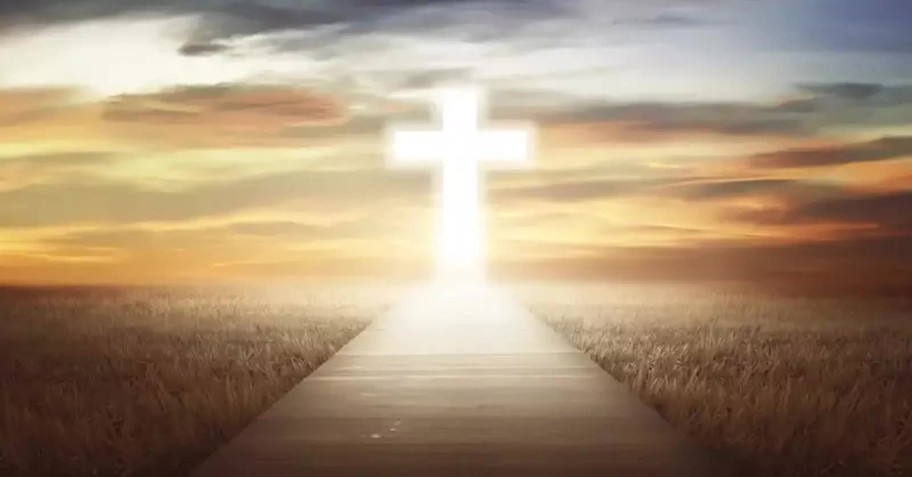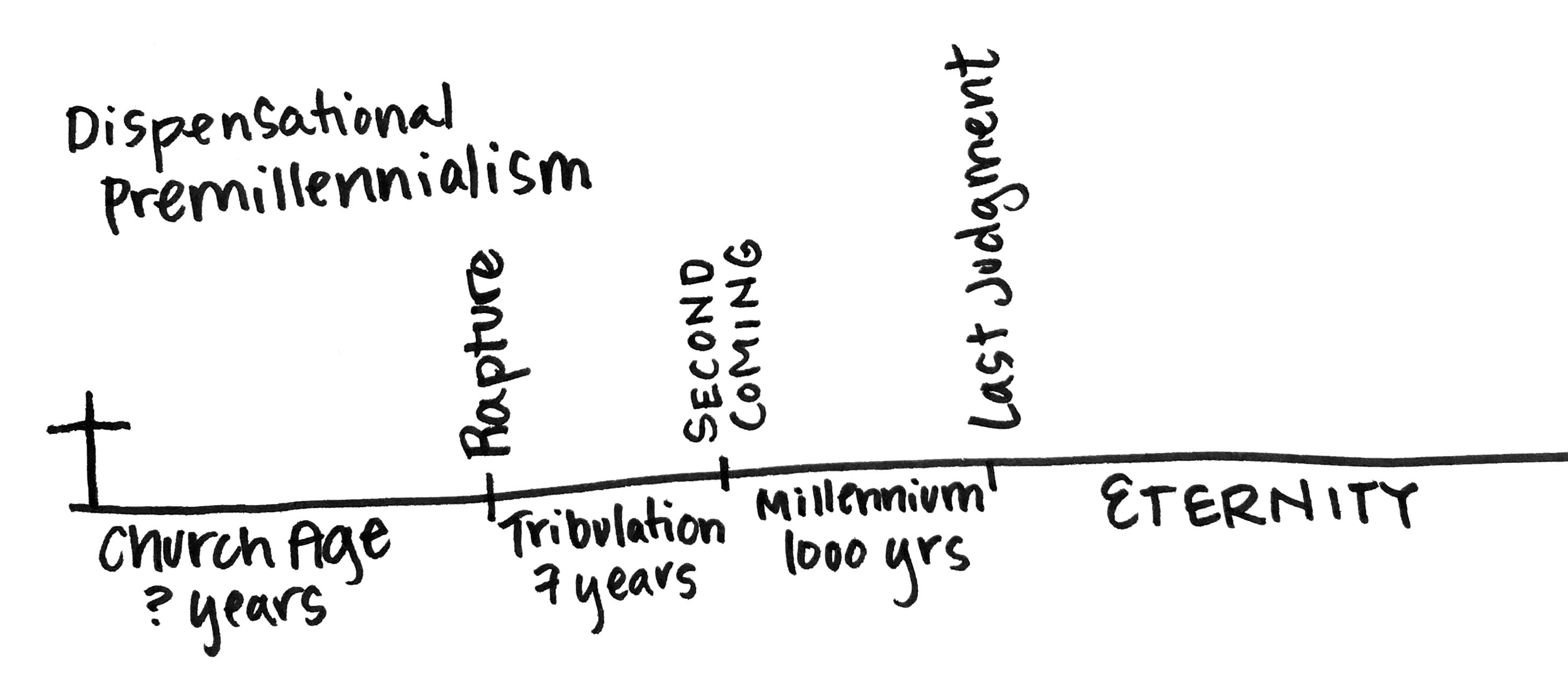What Does the Bible Say about the "End Times" and "Last Days" of the World?

I knew I had gone deep into researching the End Times when I came across the phrase “immanentize the eschaton,” which—forgive me—sounds like something Han Solo would do to fix the hyperdrive on the Millennium Falcon.
The actual meaning of the phrase? To “…bring about the…the final, heaven-like stage of history.” It was the rallying cry of conservatives in the ‘60s and ‘70s, critiquing the utopian projects of communists, Nazis, and liberal theologians who imagined their ideology would bring Heaven on earth. I came across it the Wikipedia article about Postmillennialism, one of the historical views of the end times.
I’ve been a Christian for thirty years. I’m still trying to define all these terms, not to mention decide which of them I should believe.
Please tell me I’m not alone in admitting that End Time jargon makes my head spin: “dispensation”, “eschatology,” “premillennialism,” oh, my. I want to better informed—I really do. But some days, laundry is a lot simpler, and usually feels more urgent. However, words like "Armageddon", the "apocalypse", and the final judgement can certainly get our minds spinning with fear.
Can we really know what the Bible does and does not say about the end times? Let's take a look at some different viewpoints of the End Times and what it all really means. First, let's take a closer look at eschatology, the study of the end times, and try to break down each theory.
What Does Eschatology Mean?
Eschatology is the branch of theology concerned with the study of the end times or the final events in the history of the world and humanity. It involves the examination of beliefs about the afterlife, the destiny of souls, and the ultimate fate of the world.
Greek Origin: The term "eschatology" comes from the Greek words "ἔσχατος" (eschatos), meaning "last" or "final," and "λόγος" (logos), meaning "word," "study," or "discourse." Thus, eschatology literally means "the study of the last things."
Understanding eschatology is essential for several reasons:
- Biblical Revelation: The Bible, particularly in books like Daniel, Ezekiel, and Revelation, provides detailed prophecies about the end times. These scriptures reveal God's plan for the future, including the return of Christ, the final judgment, and the establishment of a new heaven and new earth. Evangelicals believe that studying these passages helps believers understand God's ultimate purposes and prepares them for what is to come.
- Jesus' Teachings: Jesus himself spoke about the end times. In Matthew 24-25, known as the Olivet Discourse, He provides significant teachings about the signs of His return and the end of the age. Understanding these teachings is crucial for evangelicals, as it emphasizes the importance of being watchful, prepared, and faithful in anticipation of Christ's return.
- Hope and Encouragement: Eschatology offers hope and encouragement to believers. Romans 8:18-25 speaks about the future glory that will be revealed and the redemption of creation. Revelation 21:1-4 describes a future where there will be no more pain, sorrow, or death. These promises provide comfort and assurance, especially during times of suffering and persecution.
- Moral and Spiritual Readiness: The Bible underscores the importance of being spiritually prepared for the end times. In 2 Peter 3:10-12, believers are encouraged to live holy and godly lives as they await the day of the Lord. This anticipation motivates evangelicals to pursue righteousness and deepen their relationship with God.
- Proclamation of the Gospel: Understanding eschatology fuels the urgency of evangelism. Matthew 28:19-20, known as the Great Commission, commands believers to make disciples of all nations. Evangelicals believe that understanding the end times highlights the need to share the gospel with others so that they too can experience salvation and eternal life.
- Discernment and Wisdom: The Bible warns of false prophets and deceptive teachings in the last days (Matthew 24:24, 1 Timothy 4:1). Studying eschatology equips believers with discernment to recognize and reject false doctrines, ensuring they remain steadfast in the truth.
Through studying the biblical teachings on the end times, believers can better understand God's purposes and live faithfully in anticipation of Christ's return.

Key Events of the End Times
Before we dive into the different viewpoints of eschatological studies, let's take a look at a few key events of the end times that the Bible tells us about. Scripture tells us several events and conditions that will signify the "end of the world" which sometimes is referred to as "te end times" or "last days":
1. False Christs and False Prophets: Matthew 24:24: "For false messiahs and false prophets will appear and perform great signs and wonders to deceive, if possible, even the elect." 1 Timothy 4:1: "The Spirit clearly says that in later times some will abandon the faith and follow deceiving spirits and things taught by demons."
2. Wars and Rumors of Wars: Matthew 24:6-7: "You will hear of wars and rumors of wars, but see to it that you are not alarmed. Such things must happen, but the end is still to come. Nation will rise against nation, and kingdom against kingdom."
Natural Disasters: Luke 21:11: "There will be great earthquakes, famines and pestilences in various places, and fearful events and great signs from heaven." Revelation 6:12: "I watched as he opened the sixth seal. There was a great earthquake. The sun turned black like sackcloth made of goat hair, the whole moon turned blood red."
4. Persecution of Believers: Matthew 24:9: "Then you will be handed over to be persecuted and put to death, and you will be hated by all nations because of me." Luke 21:12: "But before all this, they will seize you and persecute you. They will hand you over to synagogues and put you in prison, and you will be brought before kings and governors, and all on account of my name."
5. Increase in Wickedness: Matthew 24:12: "Because of the increase of wickedness, the love of most will grow cold." 2 Timothy 3:1-5: "But mark this: There will be terrible times in the last days. People will be lovers of themselves, lovers of money, boastful, proud, abusive, disobedient to their parents, ungrateful, unholy, without love, unforgiving, slanderous, without self-control, brutal, not lovers of the good, treacherous, rash, conceited, lovers of pleasure rather than lovers of God—having a form of godliness but denying its power. Have nothing to do with such people."
6. The Gospel Preached to All Nations: Matthew 24:14: "And this gospel of the kingdom will be preached in the whole world as a testimony to all nations, and then the end will come."
7. The Abomination of Desolation: Matthew 24:15: "So when you see standing in the holy place 'the abomination that causes desolation,' spoken of through the prophet Daniel—let the reader understand."Luke 21:20: "When you see Jerusalem being surrounded by armies, you will know that its desolation is near."
8. The Great Tribulation: Matthew 24:21: "For then there will be great distress, unequaled from the beginning of the world until now—and never to be equaled again." Revelation 7:14: "I answered, 'Sir, you know.' And he said, 'These are they who have come out of the great tribulation; they have washed their robes and made them white in the blood of the Lamb.'"
9. Signs in the Sky: Matthew 24:29-30: "Immediately after the distress of those days 'the sun will be darkened, and the moon will not give its light; the stars will fall from the sky, and the heavenly bodies will be shaken.' Then will appear the sign of the Son of Man in heaven. And then all the peoples of the earth will mourn when they see the Son of Man coming on the clouds of heaven, with power and great glory." Luke 21:25-27: "There will be signs in the sun, moon and stars. On the earth, nations will be in anguish and perplexity at the roaring and tossing of the sea. People will faint from terror, apprehensive of what is coming on the world, for the heavenly bodies will be shaken. At that time they will see the Son of Man coming in a cloud with power and great glory."
10. The Return of Christ: Matthew 24:30-31: "Then will appear the sign of the Son of Man in heaven. And then all the peoples of the earth will mourn when they see the Son of Man coming on the clouds of heaven, with power and great glory. And he will send his angels with a loud trumpet call, and they will gather his elect from the four winds, from one end of the heavens to the other." Revelation 19:11-16: "I saw heaven standing open and there before me was a white horse, whose rider is called Faithful and True. With justice he judges and wages war. His eyes are like blazing fire, and on his head are many crowns. He has a name written on him that no one knows but he himself. He is dressed in a robe dipped in blood, and his name is the Word of God."
Understanding these events and signs is crucial for believers to remain vigilant, prepared, and faithful as they anticipate the fulfillment of God's promises and the ultimate return of Jesus Christ.
Photo credit: istock/santoelia

What viewpoints do Christians around the world—and the theologians we esteem—hold about the end of days?
What distinguishes each view? And where can we go to find out more?
Here, then, is a summary, in alphabetical order, of the main eschatological views of Christianity, written as impartially as I can manage. I’ve focused on four: amillennialism, dispensational premillennialism, historical premillennialism, and postmillennialism.
I’ve included a few hand-drawn timelines to help clarify the differing viewpoints, which are based on Paul N. Benware’s book, Understanding End Times Prophecy, a text written from the dispensational premillennialist point of view. I’ve simplified some of his diagrams for clarity, since Benware goes into much more depth than I can here.
May increased understanding of the end of days help us place our hope in God’s power and intentions for all of eternity.

Amillennialism
If you want to make flashcards, write this word down first: millennium, which literally means a thousand-year period. In Revelation 20, John writes that Christ will reign for one thousand years. When and how this millennium takes place is a crucial difference between each of the major end times views, thus the root “millennium” in each of their names. Amillennialism, then, literally means no millennialism. Amillennialists believe John’s words in Revelation 20 should be taken figuratively, not as a literal description of a thousand-year government-on-earth by the resurrected Jesus.


Key Beliefs of Amillennialism:
· As Benware notes, “amillennialism” is somewhat of a misnomer. In fact, amillennialists do believe in a millennium, but think it “has already begun and is identical with the current church age.”
· They consider the millennium as the current spiritual reign of Christ on earth through His church.
· Even though they believe Christ is Lord over the earth in the present age, however, they have “a pessimistic view of the present age."
· They believe things on earth will only improve after Christ’s Second Coming, when eternity, and Christ’s full Kingdom, begins.
· Amillennialism is the most commonly held eschatological viewpoint in worldwide Christianity, since Catholics, Orthodox Christians, Episcopalians, and other denominations hold it as their official teaching.
· Amillennialism is also an old view of the end times, possibly emerging as early as the first century. It gained the most adherents during the Medieval period and was the main viewpoint of most Protestant reformers, including John Calvin and Martin Luther.

Dispensational Premillennialism
Dispensational Premillennialism is a relatively new arrival on the eschatology scene. First developed in the mid-eighteenth century by Irish theologian John Nelson Darby, it was popularized in the United States through the Scofield Bible, schools like Moody Bible Institute and Dallas Theological Seminary, and, notably, popular works like Hal Lindsay’s The Late Great Planet Earth and the Left Behind series.
“Premillennial” means that adherents believe the second coming of Christ will come before the millennium. There’s more than one strain of “premillennial” theology; the older form of premillennialism is “historical” premillennialism (which we’ll discuss next).


Key Beliefs of Dispensational Premillennialism:
Arguably, the dispensational view is the most complicated of all the eschatological systems.
· According to Charles Ryrie, Dispensational Premillennialists “[view] the world as a household run by God. In this household-world, God is dispensing or administering its affairs according to His own will and in various stages of revelation in the passage of time” (emphasis mine).
· Dispensationalists name these ‘various stages’ dispensations, many agreeing that there are seven of them. Benware names these dispensations pre-fall, conscience, government, patriarchal, Mosaic, church, and millennial, though others define them differently.
· When God introduces a new way of ‘administering his affairs,’ a new dispensation begins. For example, Jesus’ death and resurrection is the transition point between the Mosaic and church dispensations. The Second Coming of Christ marks the change from the church to the millennial dispensation.
· Dispensationalism draws a distinction between how God will deal with the church and how God deals with Israel.
· It also insists that believers will not experience the seven-year Tribulation, described in Revelation 7:14, and by Jesus in Mathew 24:21 and 29. Instead, a rapture will remove believers from Earth before the trouble begins.
· The Final Judgement will take place after the thousand-year reign of Christ, after which eternity will begin.

Historical Premillennialism
“Historical” premillennialism is so called because it is the earliest Christian view of the end times. The majority of early church fathers had a historical premillennialist eschatology until roughly the fourth century, when amillennialism became the official teaching of the Roman church.

Key Beliefs of Dispensational Premillennialism
· Like dispensationalists, historical premillennialists believe the second coming will occur before the literal millennium reign of Christ reign on earth.
· Unlike dispensationalists, however, historical premillennialists believe that the church will experience the tribulation but will find relief when Christ comes again in his power and glory.
· A modern take on historical premillennialism is sometimes called “covenant premillennialism,” based on its view that God established different “covenants” throughout human history—such as works, redemption, and grace—as a way of relating to humankind. These are different than the “dispensations” in dispensational premillennialism, since the “covenants” assume that Biblical covenants made with Israel equally apply to the Church, while dispensationalism draws a bright line between how God treats the Church and Israel.
· John Piper, Francis Schaeffer, and Charles Spurgeon are notable theologians who fall roughly within historic premillennialism.

Postmillennialism
According to Benware, postmillennial theology assumes that Christ’s Second Coming will happen after the millennium; generally, postmillennialists see the 1000-year period mentioned in Revelation as a figurative, not literal length of time.

Key Beliefs of Postmillennialism:
· Postmillennialism is an essentially optimistic view of the world.
· It assumes that humans can bring forth the millennium through evangelism, good works, powerful social movements, or even science, after which Jesus would return, ushering in eternity.
· Puritans such as Jonathan Edwards held early postmillennialist views, believing that the Puritan settlements in colonial America would end in a golden age. But later, World War I’s horrors quelled that optimism, and other views of the end times mostly overtook the view.
· John Walvoord, a noted dispensational theologian, names Walter Rauschenbusch as an important postmillennial theologian from the past century.

Where Shall Our Hope Take Us?
I’ll be honest: sometimes, eschatology frightens me, leaving me anxious and afraid. Like all of our theology, our views on the end times should produce in us the fruit of the Spirit, such as peace, kindness, goodness, and self-control.
It’s important that we lift up all of our theological viewpoints to God, asking for clarification, peace, and guidance. Like most theology, we see God’s reality through a glass, darkly. Even if we feel perfectly clear on our eschatological viewpoints, we must remain open to God’s mystery, provision, and ability to surprise us.
Christ tells us to be awake and aware to his second coming; this theology matters. Still, he calls on us not to worry about tomorrow, and reminds us that the most important commandment is to love God and our neighbor. As we consider what mysteries the future holds, let’s spur each other on to loving God faithfully in the here and now.
Heather Caliri is a writer from San Diego who uses tiny, joyful yeses to free herself from anxiety. Tired of anxiety controlling your life? Try her mini-course, “Five Tiny Ideas for Managing Anxiety," for free here.
Originally published May 23, 2018.








